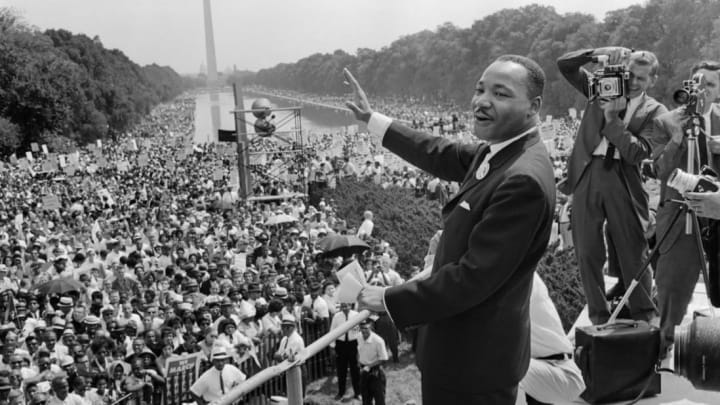On August 28, 1963, Martin Luther King Jr. stood on the steps of the Lincoln Memorial and gave a speech for the ages, delivering the oratorical masterpiece “I Have a Dream” to nearly 250,000 people.
When he was done, King stepped away from the podium, folded his speech, and found himself standing in front of George Raveling, a former Villanova University basketball player who, along with his friend Warren Wilson, had been asked to provide extra security around Dr. King while he was speaking. “We were both tall, gangly guys,” Raveling told TIME in 2003. “We didn’t know what we were doing but we certainly made for a good appearance.”
Raveling, who was moved by the speech and the moment, saw the folded papers in King’s hands and asked if he could have them. King gave the young volunteer the speech without hesitation, and that was that.
“At no time do I remember thinking, ‘Wow, we got this historic document,’” Raveling told Sports Illustrated in 2015. Raveling—not realizing he was holding what would become an important piece of history in his hands—went home and stuck the three sheets of paper into a Harry Truman biography for safekeeping. They sat there for nearly two decades while Raveling developed an impressive career coaching NCAA men’s basketball.
In 1984, Raveling had recently taken over as the head coach at the University of Iowa and was chatting with Bob Denney of the Cedar Rapids Gazette when Denney brought up the March on Washington. That’s when Raveling dropped the bomb: “You know, I’ve got a copy of that speech,” he said, and dug it out of the Truman book. After writing an article about Raveling’s connection, the reporter had the speech professionally framed for the coach.
Though he displayed the framed speech in his house for a few years, Raveling began to realize the value of the piece and moved it to a bank vault in Los Angeles. Though he has received offers for King’s speech—one collector wanted to purchase the speech for $3 million in 2014—Raveling has turned them all down. In August 2021, Villanova announced that Raveling had entrusted the university to become “the next steward” of the speech, which went on display to the public for the first time at the National Museum of African American History and Culture (NMAAHC) later that same month.
On August 7, 2023, the speech returned to the NMAAHC for a little over a month to mark the 60th anniversary of the March on Washington.
“I have no idea why I even asked him for the speech,” Raveling told TIME in 2003. “But I’m sure glad that I did.”
A version of this story ran in 2019; it has been updated for 2024.
